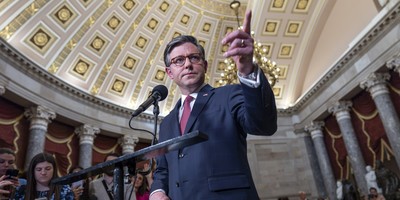Last month, New York Times legal writer Adam Liptak said two recent Supreme Court cases "suggest that the Roberts Court is prepared to adopt a robustly libertarian view of the constitutional protection of free speech." Elena Kagan, President Obama's nominee to replace retiring Justice John Paul Stevens, was on the losing side in both.
As solicitor general, of course, Kagan has an obligation to defend federal laws against constitutional challenges. But her pro-censorship positions went beyond the call of duty. Together with some of her academic writings, her arguments in these cases provide grounds to worry that she will be even less inclined than Stevens, who has a mixed First Amendment record, to support freedom of speech.

Defending a 1999 federal ban on depictions of animal cruelty, Kagan boldly asked the Supreme Court to recognize a new category of speech that, along with such historical exceptions as defamation, incitement and obscenity, is entirely outside the scope of the First Amendment. "Whether a given category of speech enjoys First Amendment protection," she wrote, "depends upon a categorical balancing of the value of the speech against its societal costs."
Writing for the 8-to-1 majority, Chief Justice John Roberts called this claim "startling and dangerous," adding: "The First Amendment's guarantee of free speech does not extend only to categories of speech that survive an ad hoc balancing of relative social costs and benefits. The First Amendment itself reflects a judgment by the American people that the benefits of its restrictions on the Government outweigh the costs. Our Constitution forecloses any attempt to revise that judgment simply on the basis that some speech is not worth it."
Defending federal restrictions on political speech by corporations, Kagan tried to paper over an equally startling claim by Deputy Solicitor General Malcolm Stewart, who had told the Court that the Federal Election Commission could ban books in the name of preventing the appearance of corruption.
Recommended
"The government's answer has changed," she said during a second round of oral arguments in September. But it later became clear that she agreed with Stewart, athough she tried to reassure the Court by emphasizing that so far the FEC had not tried to ban any books.
There is evidence in Kagan's academic articles that her overzealous defenses of federal censorship were more than a function of her job. In a 1993 essay published by The University of Chicago Law Review, for instance, she suggested how supporters of bans on pornography and "hate speech" could pursue their goals despite that pesky First Amendment. Her proposals included bans on "works that are both sexually explicit and sexually violent," a redefinition of obscenity to focus on material deemed harmful to women (which would then be unprotected -- an idea that anticipated Kagan's argument in the animal cruelty case), "hate crime" laws that boost penalties for existing offenses when they're motivated by bigotry and laws "prohibiting carefully defined kinds of harassment, threats, or intimidation."
More fundamentally, Kagan's understanding of First Amendment law, described most fully in a 1996 University of Chicago Law Review article, suggests a tolerance for censorship when it is appropriately disguised by euphemisms. In Kagan's view, the main goal of First Amendment doctrine is not to maximize freedom or promote robust debate, but to ferret out impermissible motives for speech restrictions.
While the government may constitutionally restrict speech based on "neutrally conceived harms," Kagan says, it may not restrict speech based on "hostility toward ideas." But as she herself more or less acknowledges, this distinction ultimately collapses because people are hostile to ideas they consider harmful.
Whether the issue is pornography, bigotry, dogfight videos or political ads sponsored by corporations, would-be censors always claim the speech they want to outlaw causes harm. Without a theory about what sort of harm (if any) can justify speech restrictions, we are left with the "ad hoc balancing of relative social costs and benefits" that the First Amendment was intended to prevent.

























Join the conversation as a VIP Member